2025 Shanghai Auto Show Preview: Intelligent Driving Takes Center Stage! Elevated Technology and Universal Accessibility
![]() 03/24 2025
03/24 2025
![]() 666
666
Last year's Beijing Auto Show, Guangdong-Hong Kong-Macao Greater Bay Area Auto Show, and Guangzhou Auto Show left a profound impact on Dianchetong, be it through the adrenaline-pumping "price war" or the unveiling of significant new products and cutting-edge technologies. Automakers truly spared no effort.
Following this year's Spring Festival holidays, Changan and BYD led the charge in firing the first shot towards "popularizing intelligent driving," followed by domestic brands such as Geely, Chery, and GAC. Driven by mainstream automakers, intelligence has become the most frequently used keyword in the current automotive market.
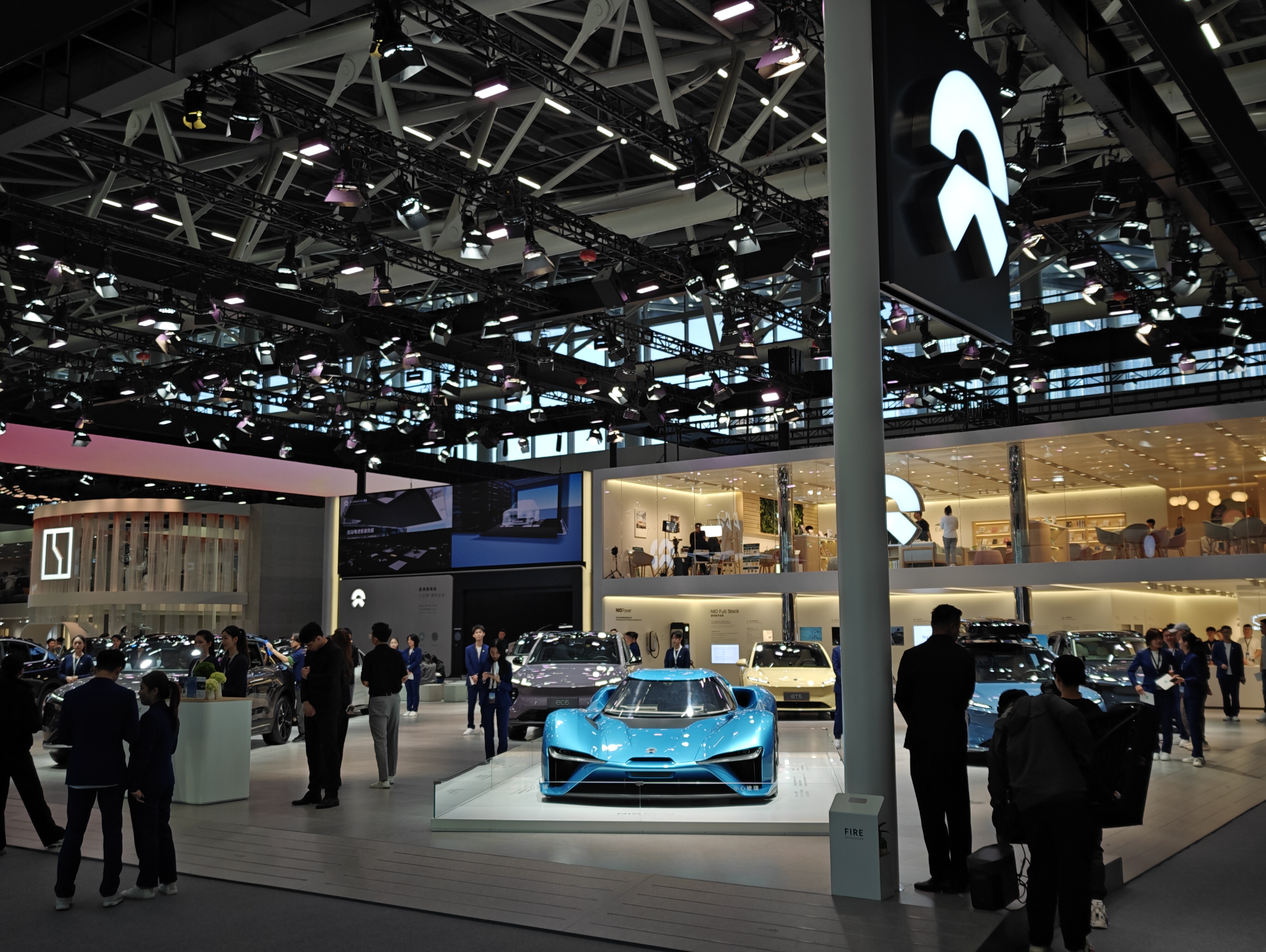
Image source: Dianchetong
In line with this overarching theme, the Shanghai Auto Show, set to take place in late April, is destined to be the main battleground for new energy vehicles and smart cars, particularly with a concentration of related high-intelligence products on display.
Previous auto shows have already showcased numerous intelligent technologies, but this year we may witness mainstream brands exhibiting civilian-grade products equipped with high-level intelligent driving, thereby appealing to a broader mainstream consumer base. Simultaneously, we can also observe new breakthroughs by automakers in the field of intelligent driving and even see some automakers lagging behind due to their inability to keep pace with intelligent technology.
Dianchetong believes that automakers will present their latest intelligent achievements at this year's Shanghai Auto Show. At that time, the Dianchetong team will also bring you comprehensive on-site reports. Before that, let's take a closer look at the development trends of intelligent technology that may be on display at this auto show.
When Will L3 Intelligent Driving Become Mainstream? The Shanghai Auto Show May Provide Clues
On the evening of March 18, Zeekr announced that its new flagship SUV, the Zeekr 9X, will be the first to carry the Qianli Haohan H9 intelligent driving solution and confirmed that the new car will make its debut at the Shanghai Auto Show.
According to the official statement, this intelligent driving solution is the industry's first designed for L3-level intelligent driving, utilizing Zeekr's self-developed dual Thor chip domain controller and the industry's first 5 LiDARs, ultimately achieving a computing power of 1400 TOPS.
Dianchetong understands that several auto brands are planning to launch L3-level autonomous driving vehicles this year, including Zenith Auto, XPeng Motors, Li Auto, among others. Zenith Auto has been relatively aggressive; as early as last October, Yu Chengdong proposed accelerating the legislative process related to L3-level intelligent driving standards, aiming to smoothly commercialize Huawei's ADS 4.0, which can achieve L3-level autonomous driving, this year.
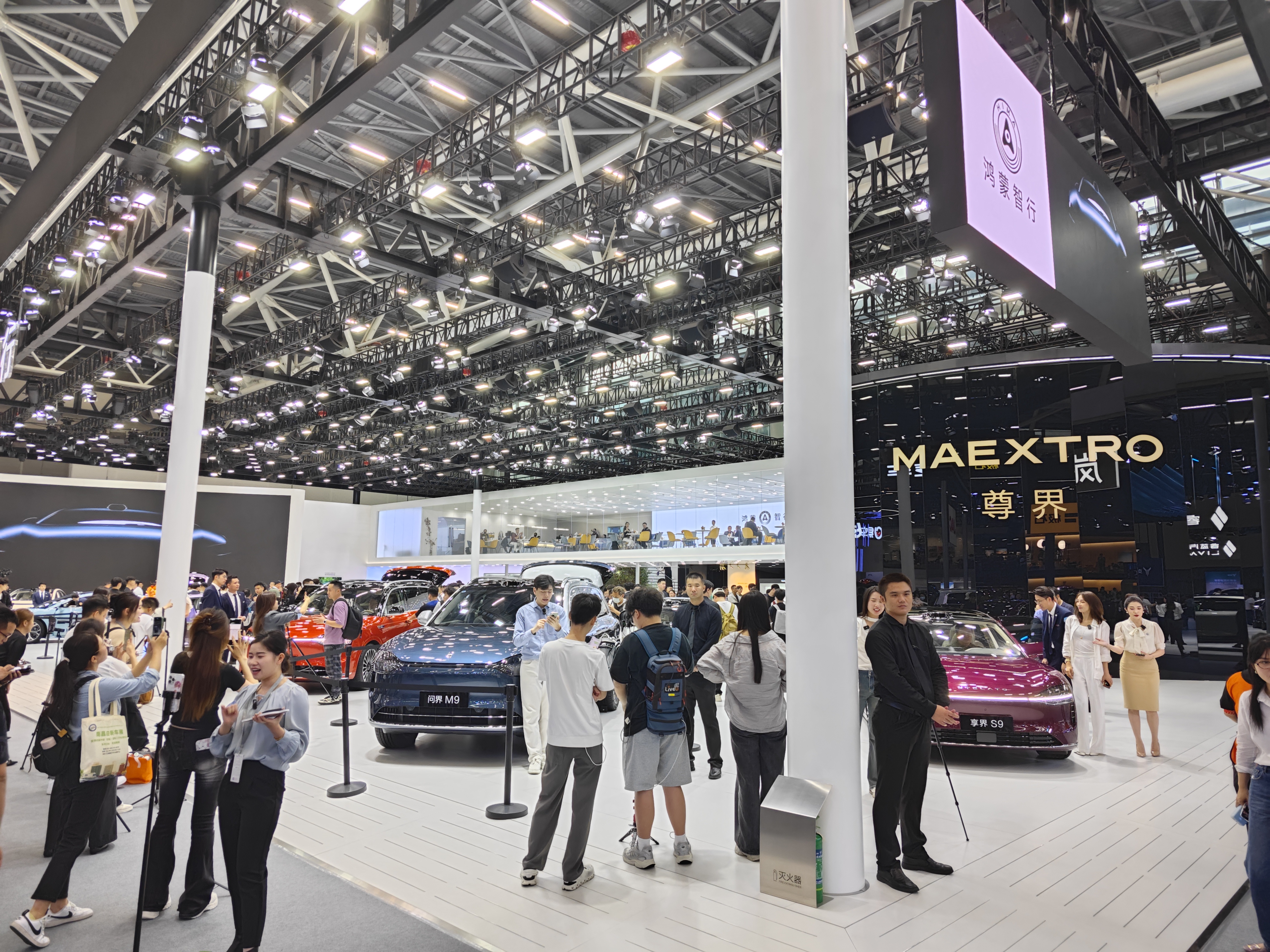
Image source: Dianchetong
However, relevant regulations regarding L3 and above autonomous vehicles have yet to be implemented. Currently, only Beijing, Wuhan, and other regions have issued regional guidance policies. Policies have not been fully liberalized. Only when intelligent driving technology reaches a level that is user-friendly, practical, and consumers dare to use, will the release of relevant policies come naturally.
But Dianchetong noticed that to secure their position in the field of intelligent driving, automakers have begun to compete for the title of "first mass-produced L3-level intelligent driving vehicle."
Automakers such as Zeekr, Hongmeng Zhixing, Li Auto, XPeng, and SAIC-GM-Wuling have confirmed that they will mass-produce L3-level autonomous driving models this year. Moreover, GAC Group recently announced that within this year, it will launch the mass production and sales of China's first L3-level autonomous driving model and the offline delivery of the industry's first L4 autonomous driving pre-installed mass production model. It has even introduced an exclusive intelligent driving insurance to alleviate users' concerns about using intelligent driving to a certain extent.
The opening of the Shanghai Auto Show signifies that one-third of the year has passed. Since numerous automakers aspire to be the first to launch mass-produced L3-level intelligent driving vehicles, in addition to the debut of Zeekr 9X and Zenith S800, other automakers are likely to make significant announcements at the Shanghai Auto Show.
"Universal Access to Intelligent Driving," Another Highlight of the Shanghai Auto Show?
Changan Automobile and Zero Run have successively launched models with LiDAR priced at the 100,000-yuan level, but BYD has made the most aggressive move by proposing "70,000-yuan intelligent driving," followed by Chery Automobile and Geely Automobile.
At its recent intelligent strategy conference, Chery Automobile announced the launch of the Chery Xiao'ant Intelligent Driving Edition, lowering the entry threshold for high-level intelligent driving to the 60,000-yuan level, and even shouting the slogan of "more equal than 'equal access'," seemingly directly challenging BYD's "70,000-yuan intelligent driving."
Geely Automobile's "Haohan Qianli" intelligent driving solution has been announced to be deployed on the Geely Xingyuan model, priced as low as 68,800 yuan, capable of ultimately achieving high-speed NOA functionality.
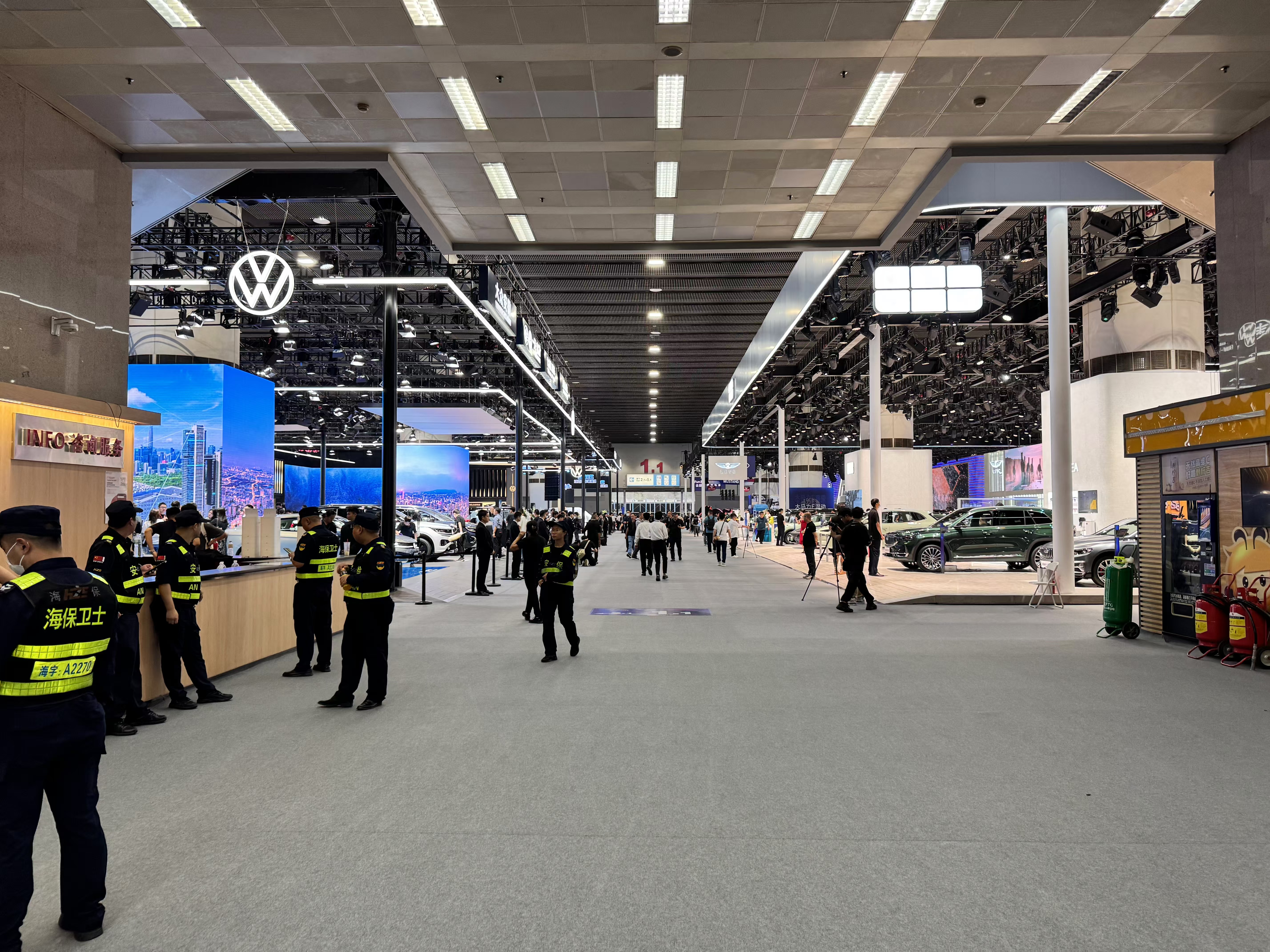
Image source: Dianchetong
It is not difficult to imagine that during this Shanghai Auto Show, Chery, BYD, and Geely will showcase their latest intelligent driving models. To be honest, although many automakers have plans for "universal access to intelligent driving," intelligent driving is by no means a rigid requirement for most users' travel. However, automakers' decision to apply intelligent driving to entry-level products, without price increases, will naturally attract consumers.
For now, only BYD can achieve no price increase for models of the same configuration. The Chery Xiao'ant Intelligent Driving Edition does lower the entry threshold for high-level intelligent driving, but it is unclear which version of the car's configuration level is consistent with.
High-level intelligent driving with a lower threshold can indeed attract attention, but if consumers have to spend more on their car purchase budget to enjoy high-level intelligent driving, the appeal of the intelligent driving version will decrease significantly. When the purchase cost of intelligent driving is accepted by users, "universal access to intelligent driving" will become more likely.
Luxury Brands Embrace Huawei, "Huawei Content" Increases
For luxury brands with a profound brand history, in the past, they seemed indifferent to emphasizing the intelligence of their products, believing that a user-friendly in-car infotainment system and driver assistance configurations were sufficient to meet consumers' travel needs. However, since last year, Audi has already partnered with Huawei, and recently BMW China announced a cooperation agreement with Huawei Device, deeply integrating into the HarmonyOS ecosystem. Mercedes-Benz, which appears to not apply Huawei technology extensively, actually already supports HUAWEI HMS For Car fast applications in its S-Class.
At this Shanghai Auto Show, BMW and Audi, which have relatively high "Huawei content," will showcase products equipped with Huawei's intelligent technology. Among them, the locally produced all-new BMW iX3 will make its debut at this Shanghai Auto Show and is confirmed to go into mass production and be launched on the market next year.
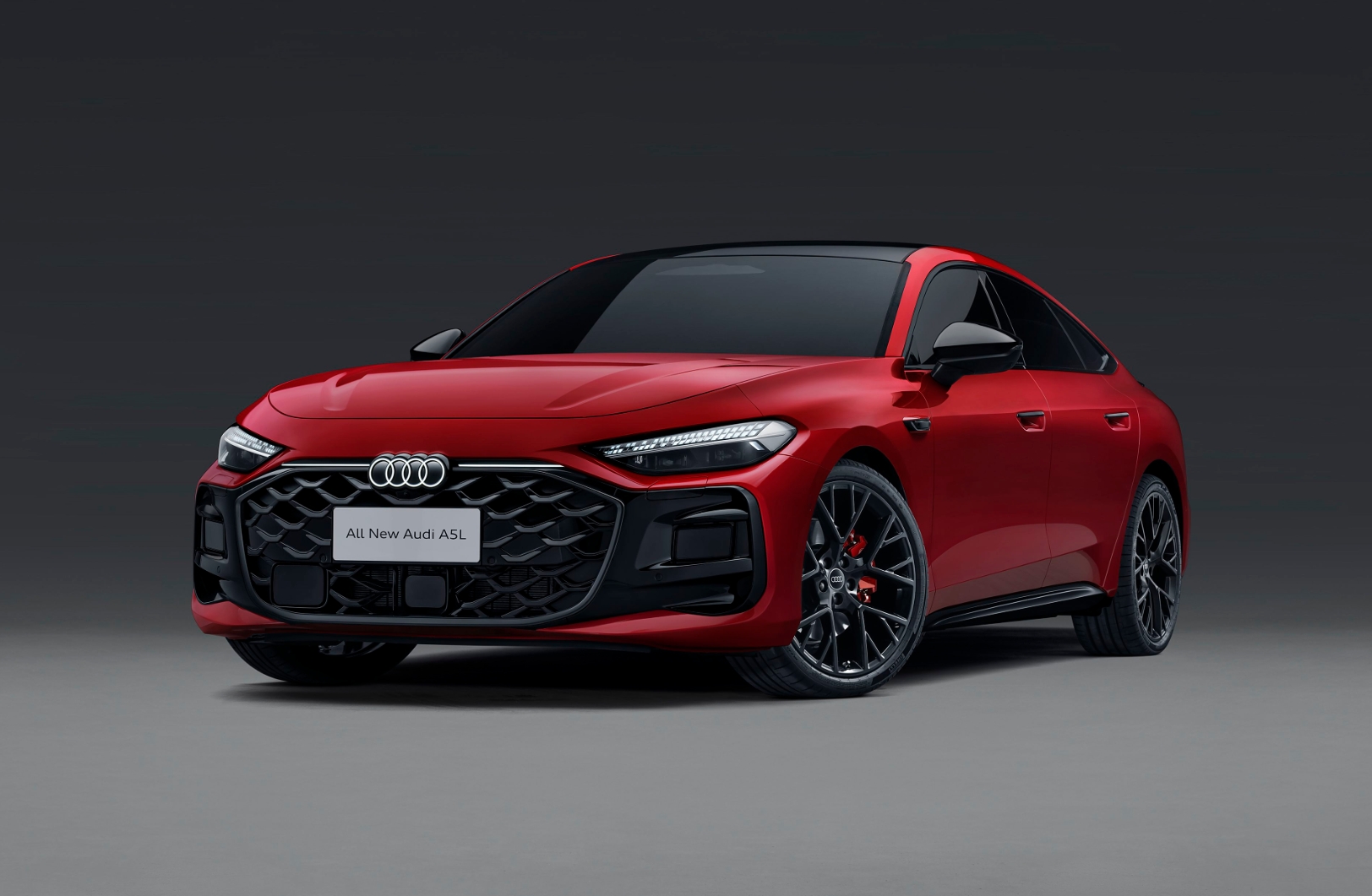
Image source: SAIC Audi official
It is revealed that the all-new BMW iX3 will be the first to carry the deeply integrated HUAWEI HiCar, effectively integrating the HarmonyOS ecosystem into the cockpit. In addition to conventional digital keys and HiCar, BMW's own MyBMW APP will also be listed in the HarmonyOS NEXT application market. Apart from the in-car infotainment system, other intelligent cockpit functions are essentially tied to the HarmonyOS cockpit.
SAIC Audi will unveil its first joint venture fuel vehicle equipped with Huawei's intelligent driving technology at the Shanghai Auto Show – the SAIC Audi A5L. This car will directly adopt the new E³ 1.2 electronic and electrical architecture, completely abandoning the traditional architecture solution, thereby achieving control over power and handling, intelligent assistance, infotainment, and other domains. Although the SAIC Audi A5L only undergoes "customized" functional modifications based on Huawei ADS 2.0, for Audi, which has gradually declined in sales in the domestic luxury market in recent years and has not achieved good results in its electrification strategy, it indeed needs Huawei, a brand with higher influence, to attract consumers.
BMW and Mercedes-Benz have indeed seen a decline in their performance in the domestic market, but they have already made strides in the field of intelligence, such as BMW's newly launched next-generation super-sensing intelligent cockpit and Mercedes-Benz's L2++ high-level intelligent driving and MB.OS operating system. In contrast, BMW and Mercedes-Benz do not seem to be in such a rush, while Audi's market environment is indeed worse. Therefore, they will leverage the high-traffic platform of the Shanghai Auto Show to showcase their intelligent advantages.
The Performance of Host Brands is Under Scrutiny, How to Play the "Intelligent Card"?
Currently, the organizer of the Shanghai Auto Show has only revealed basic information such as the scale of the exhibition halls and has not yet announced the number of exhibition vehicles or participating brands. However, it is certain that auto brands headquartered in the Shanghai area will undoubtedly have many local advantages, but forgive Dianchetong for being blunt, there may not be many local brands that can stand out.
Last year, NIO, headquartered in Shanghai, unveiled the Snapdragon Ride Flex (SA8775P) cabin-and-driving integration platform during the Beijing Auto Show and planned to implement it on mass-produced vehicles in the second quarter of 2025. However, by the end of the year, NIO was rumored to have undergone a series of negative incidents such as "mass layoffs," "delayed salary payments," and "arrears to suppliers," and the brand's market reputation quickly declined.
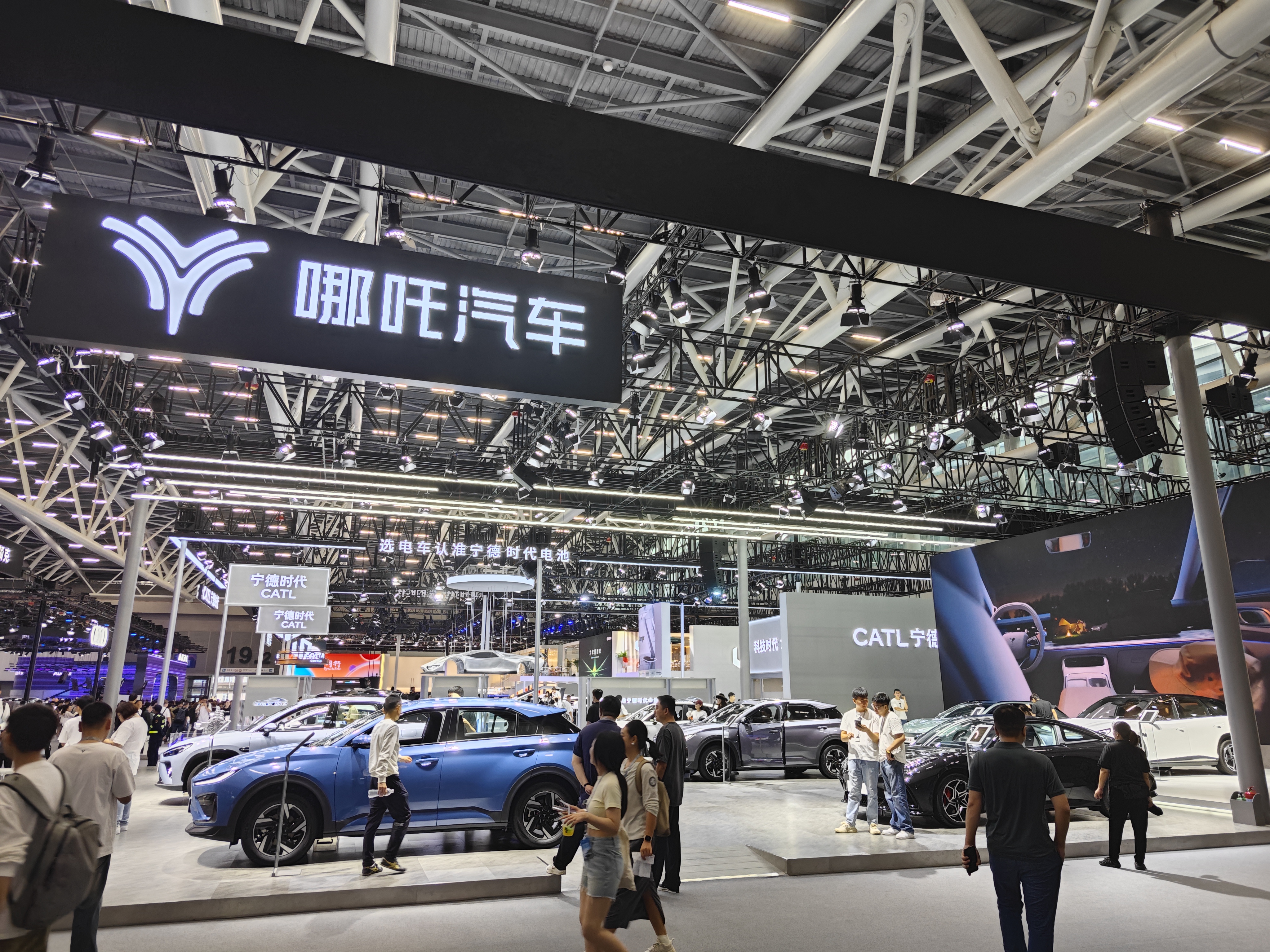
Image source: Dianchetong
According to a report by "LeiPhone," NIO recently began to disband its R&D team, but this news was quickly refuted as false rumors by the official side. We cannot ascertain the real situation, but NIO's monthly sales data has already fallen to three digits, and the sluggish performance is an undeniable fact. During last year's Guangzhou Auto Show, there was already not much buzz, and it may be difficult to reverse this embarrassing situation at this year's Shanghai Auto Show.
Furthermore, it seems that only IM Motors among SAIC Motor's sub-brands can still play the "intelligent card." MG, the merged Roewe and Feifan, primarily target the affordable market and are not directly related to universal access to intelligent driving; although the Baojun brand also emphasizes high-level intelligent driving, its market sales performance is not outstanding, and the "brake controversy" that emerged at the beginning of this year has plunged it into a vortex of product quality issues.
In the face of an increasingly competitive auto market, no automaker can afford to be complacent. In previous auto shows, automakers could still "paint the pie" for users, but with the mass production and launch of multiple intelligent driving models, automakers can only survive by timely showcasing their competitive advantages. Additionally, consumers already have a certain level of awareness of intelligence. If this growth opportunity disappears, it will be challenging for automakers to attract consumers by "painting the pie" at auto shows.
(Cover image source: Dianchetong)
Source: LeiPhone







